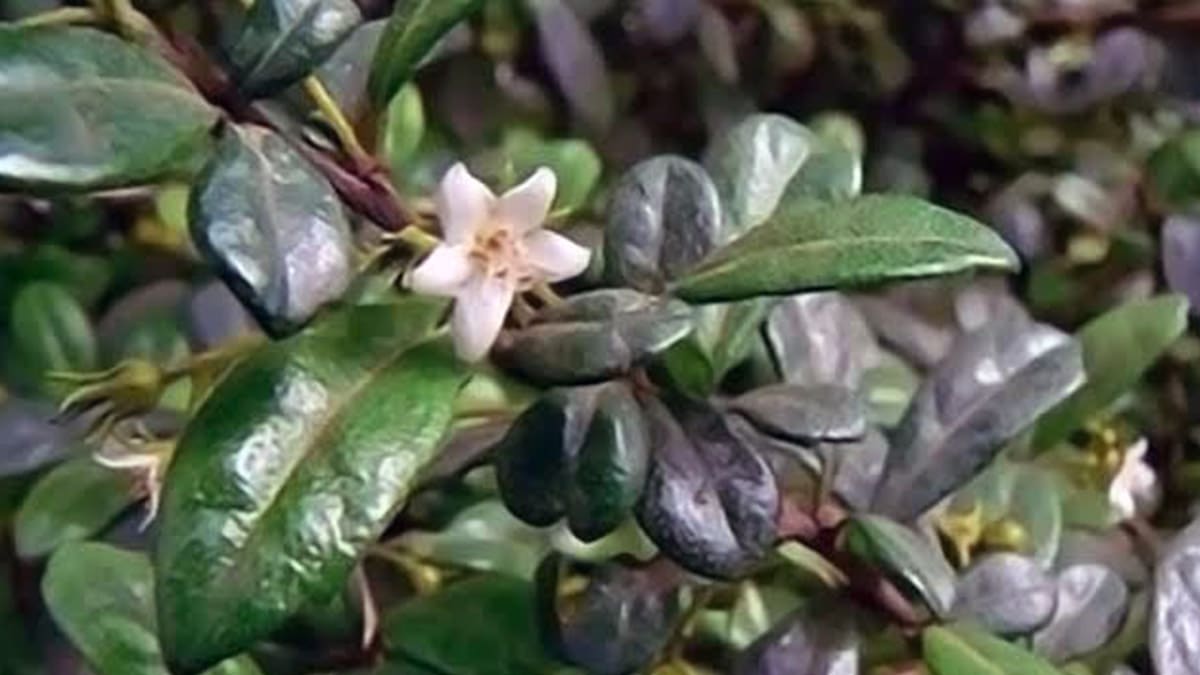
STOMACH ACHE CURE “Tsaang gubat” (Ehretia microphylla), which has long been used in the Philippines to treat diarrhea and spasms, helps relieve mild to moderate gastrointestinal colic. —Photo from the DOH
MANILA, Philippines — Researchers at the University of the Philippines Manila (UPM) have developed a natural, affordable and highly effective treatment for severe abdominal pain conditions through tablets and syrup made from tsaang gubat (Philippine tea tree), a popular local herbal medicine.
Clinical trials conducted by the National Integrated Research Program on Medicinal Plants have confirmed that tsaang gubat syrup was as effective as dicycloverine in treating mild to moderate gastrointestinal colic, especially in patients aged 2 to 18 years.
READ: UP Manila develops antifungal lotion using ‘akapulko’ plant
Dicycloverine is a synthetic drug used to relieve cramps in the stomach and intestines.
“Human trials showed that tsaang gubat provided comparable symptomatic improvement with dicycloverine syrup at various time points, from 30 minutes to 24 hours,” said Dr. Jaime Purificacion, research faculty at UPM-National Institutes of Health’s Institute of Herbal Medicine.
Biliary colic, often caused by gallstones, was another condition where tsaang gubat showed promise. Studies revealed that tsaang-gubat tablets provided comparable pain relief to dicycloverine within 30 minutes, with complete relief from colic symptoms in just two-and-a-half hours.
More affordable
Tsaang gubat is also more affordable than other synthetic drugs available in drug stores.
“Once commercialized, tsaang gubat is ideally priced at P30 per treatment, making it significantly cheaper than dicycloverine, which costs around P50, and other gastrointestinal treatments [on] the market,” Purificacion said.
Unlike synthetic treatments, tsaang gubat has no major side effects.
Dicycloverine may cause heartburn, constipation, and dry mouth, on top of more adverse reactions.
Tsaang gubat medicines have also been proven to be well-received by patients.
“The majority of patients found the syrup sweet, pleasant and easy to swallow, and there were no adverse effects reported,” Purificacion said.
Tsaang gubat (Ehretia microphylla) has long been used in the Philippines to treat diarrhea and spasms, as it contains alpha-amyrin, beta-amyrin, and baurenol—natural components that provide pain relief, reduce spasms in the gastrointestinal tract, and have an antidiarrheal effect.
‘Accessible, natural option’
“Tsaang gubat offers an accessible and natural option, particularly in rural areas, supporting our local herbal industry while integrating traditional knowledge with modern pharmaceutical practices,” Purificacion said.
“UP Manila is positioning tsaang gubat as one of the next major herbal products for 2024, offering pharmaceutical companies the opportunity to license and manufacture this innovative treatment,” the UPM said.
This breakthrough is the result of collaborative efforts from a team of UPM’s leading scientists, including Dr. Nelia Cortes-Maramba, Prof. Evangeline Amor, Dr. Clara Lim Sylianco, Dr. Horacio Estrada, Prof. Ernesta Quintana, Dr. Romeo Quijano, Dr. Natividad de Castro, Dr. Cecilia Zamora and Prof. Leticia-Barbara Gutierrez.
For further details, the public may contact Dr. Cecilia Maramba-Lazarte, director of the Institute of Herbal Medicine of the UPM-NIH through nih.ihm@gmail.com; or the UPM Technology Transfer and Business Development Office at tel. no. (632) 88141293, or ttbdo.upm@up.edu.ph.